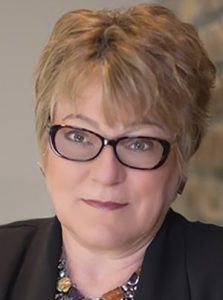Dr. Julie M Smith was the co-founder of CLG, Inc., which she describes as “the world’s premiere behavior-based strategy execution firm.” She and her colleagues have reason to claim that position having worked with many in the Fortune 500, at all levels of organizations, all around the world. As we were talking, Julie described the firm’s ability to develop deep relationships and deliver results so that they “became the behavioral-change firm that is often recommended board room to board room.” That is an enviable position for any consultancy and a great legacy. Combining all she knows from her CLG experience, with mobile technology and healthcare expertise, in 2016 Julie launched a new venture: ChangePartner. At their website ChangePartner says they provide “guaranteed outcomes through scalable, sustainable, behavioral excellence.” That is a tall promise for the healthcare industry, which desperately needs “scalable, sustainable, behavior excellence” to deliver the best care possible every day to millions of patients.
Given that backdrop and given the nature of the BOLD leader work Aveus has been doing, you might think that behavioral change is what Julie and I spent our time discussing. But no, not exactly.
Quick small world aside: I was having dinner with a friend in New York who I knew grew up in a Minnesota town. I mentioned that I was meeting Julie in a few days and that she was from that same town. My friend said without prompt, “Julie is one of the most wonderful people you will ever meet!”
And she was right! Open, funny, smart, quick. Did I mention “open”? That is what the “O” in BOLD stands for. She is also a true believer – the “B” in BOLD – or she would never have built the firm she did or make the promises she is making about ChangePartner. She is also a Learner – I could tell that in our conversation, and certainly a Doer with the track record to prove it. But it was her openness that was so captivating.
You see, the story behind Julie’s move from her former consulting life to her current innovator, entrepreneur life is not one of simple intellectual curiosity. Julie started ChangePartner out of her experiences in not one, but two family healthcare tragedies.
Julie and her beloved husband Mickey were designing the next stage of their lives, built around their farm in West Virginia. It involved a winery, a distillery, an events center and more. While it sounded like a lot of fun, it was also a lot of work that required both of them at peak performance. But her husband got sick. In the process of treatment, a medical mistake left him worse off, with significant cognitive challenges that made it impossible for him to manage the farm. Almost overnight, their next-dream chapter ended abruptly.
That was the first experience. The second happened four months later when their 20-year-old son, Aaron, died as a result of medication errors.
Now remember, this was the first time Julie and I had ever met. So when I say open… It takes tremendous courage to share something so personal, so devastating, and yet do so without bitterness or anger. My heart literally ached as she told her stories. But she has summoned all her BOLDness to do something positive out of these experiences.
She knows the helplessness that caregivers often feel in healthcare situations – many not remotely close to the tragic circumstances Julie has faced, but still personally challenging just the same. Julie and her new team are determined to do something positive to change outcomes for patients, their families, practitioners, administrators, really everyone in or touched by healthcare. Her ChangePartner application forges a bond between patients and their caregivers, so expectations and actions can be adjusted in real-time, positive feedback communicated immediately, and mutual outcomes achieved.
Julie has set a bold mission for ChangePartner: to achieve zero medical errors and 100% patient satisfaction by helping staff “do the right thing.” At first blush it sounds crazy, I know. But Julie reminded me that people scoffed when Philip Crosby first proposed the concept of “Zero Defects” in quality management; now it’s a widely accepted goal, accomplished by reducing variability in work processes. Julie is just the kind of BOLD leader to take on the tall task of reducing variability in human behavior, until no one dies needlessly of medical errors and patients and staff are engaged as partners to improve healthcare delivery. For all our sakes, I want her to succeed!
Closing Question: Julie’s BOLD story is one of turning tragedy into something positive. Many innovations and organizational changes stem from very personal experiences. Some painful. Some exhilarating. What in your personal experiences motivates you to change the world?
